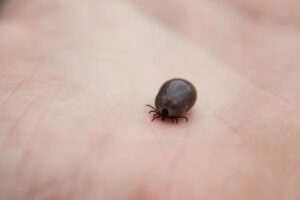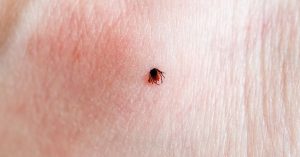Call for your appointment today 914-666-4665 | Mt. Kisco, New York

The 1-year prospective study included 52 adult Lyme disease patients with erythema migrans (EM) rashes. Their somatic symptoms included fatigue, headache, joint pain, muscle pain, and cognitive complaints.
Individuals with the worst symptoms had the worst BDI-II scores. The BDI-II scale has been used as a screening tool for patients who might benefit from further psychological evaluation for diagnosing depression.
Read: 16-year-old boy with Lyme disease presenting as depression
“There was a good to excellent direct correlation between the BDI-II score and the total number of symptoms,” writes Wormser, “suggesting that the BDI-II scores were reflecting somatic rather than affective depressive symptoms.”
When using the BDI-II assessment tool for patients with Lyme disease, “infection-related somatic symptoms per se need to be considered in the interpretation of results,” the authors conclude.
If depression is suspected, the authors recommend a psychological referral. In fact, at the 6 month visit, one patient in their study was referred for a depression evaluation based on the Beck Depression Inventory.
“The single Lyme disease patient with a score regarded as severe, which was found only at the 6 month visit, was treated by a mental health professional between the 6 and 12 months visits, and improved by the 12 month visit. This patient had a prior history of depression when she was pregnant.”
Related Articles:
Depression common in Lyme disease patients
Lyme disease patients struggle with depression
Suicidal behaviors in patients with Lyme and associated diseases
References:
- Wormser GP, Park K, Madison C, et al. Evaluation of Prospectively Followed Adult Patients with Erythema Migrans Using the Beck Depression Inventory Second Edition. Am J Med. 2018.




this seems a little confusing. The depression is real but not caused by the infection/co-infection. It is caused by overthinking the future of one’s life and the quality one will have with no absolute answers.
The depressive symptoms appeared related to the illness rather than a clinical diagnosis of depression. The Beck Depression Inventory cannot tell the difference between clinical depression and somatic issues related to the illness.
Dr Cameron,
A loved one has in the last 7 mos experienced leg cramps, progressing into fasiculations, numbness/tingling, burning, and leg weakness. Depression also. Will see a neurologist soon. Not sure if it is CIPD, MS, or much worse. Read your website and Dr Tedone’s (winningthefight.org) where he strongly feels it contributes/causes ALS and many neurodegenerative diseases? Therefore want to get the test for Borrelia infection. You are the expert. Please advise where to go for the most accurate test for Lyme Disease? Is it at iGenex? If it is negative should testing be repeated again? If it’s positive, what are the proper antibiotics and for how long? Have you seen these antibiotics work on neurological symptoms? Please help us with your expertise. Most neurologists we’ve briefly talked to don’t believe there is a link! Lastly, if we would like a phone consultation with you, how do we get in touch with you? Thanks, Joe at he****@*****lo.edu
It can be so frustrating too see your loved one ill for 7 months. The list of possible diagnoses can be overwhelming at the beginning. The laboratory testing can be frustrating at the start. Even specialty labs are not as reliable as we would like. I see patients with similar presentations. Call my office at 914 666 4665 with questions.